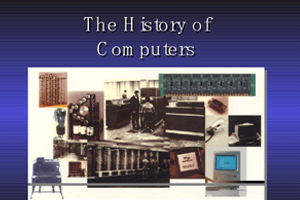The word ‘computer’ was first used in the 16th century for a person who used to compute, mean do calculations. The word was used in a similar sense as a noun until the 20th century. Women were hired as human computers to hold out all sorts of calculations and computations
By the end of the 19th century, the word was also used to describe machines that did calculations. The modern-day use of the word is usually to explain programmable digital devices that run on electricity.
Early History of Computer
Since the evolution of humans, many devices have been used for calculations for thousands of years. One of the oldest and well-known devices was an abacus. Then in 1822, the father of computers, Charles Babbage started developing the first mechanical computer. In 1833 he actually designed an Analytical Engine which was a general-purpose computer. This computer contained an ALU, some basic flowchart principles, and also a concept of integrated memory.
More than a century later in the history of computers, we actually got our first electronic computer for general purposes. It was known as the ENIAC, which stands for Electronic Numerical Integrator and Computer. This computer was invented by John W. Mauchly and J. Presper Eckert.
With the time the technology developed and the computers got smaller and the processing got faster. The first laptop was developed in 1981 and it was introduced by Adam Osborne and EPSON.
Generations of Computers
In the history of computers, we refer to the advancements of modern computers as the generation of computers. We are currently on the fifth generation. So let us look at the important features of these five generations of computers.
- 1st Generation: 1st Generation was used from the amount of 1940 to 1955. During this period, machine language was developed for the use of computers. They used vacuum tubes for the circuitry. For the aim of memory, they used magnetic drums.
- 2nd Generation: In 2nd generation computers, they replace vacuum tubes with transistors. This made the computers smaller, faster, and more energy-efficient. And they advanced from binary to assembly languages.
- 3rd Generation: The main change in this period (1964-1971) was the development of the integrated circuit.
- 4th Generation: The first microprocessors were brought along with the fourth generation of computers. This was the time when companies started producing computers for home use. Also, higher computer languages like C++ and Java were developed.
- 5th Generation: This is the present and the future of the computer world. The most important development of this generation is artificial intelligence. The use of parallel processing and superconductors are making this a reality and provide a lot of scope for the future.
If you have skills in PHP programming and you want to enhance your career in this field, a PHP certification from StudySection can help you reach your desired goals. Both beginner level and expert level PHP Certification Exams are offered by StudySection along with other programming certification exams.




